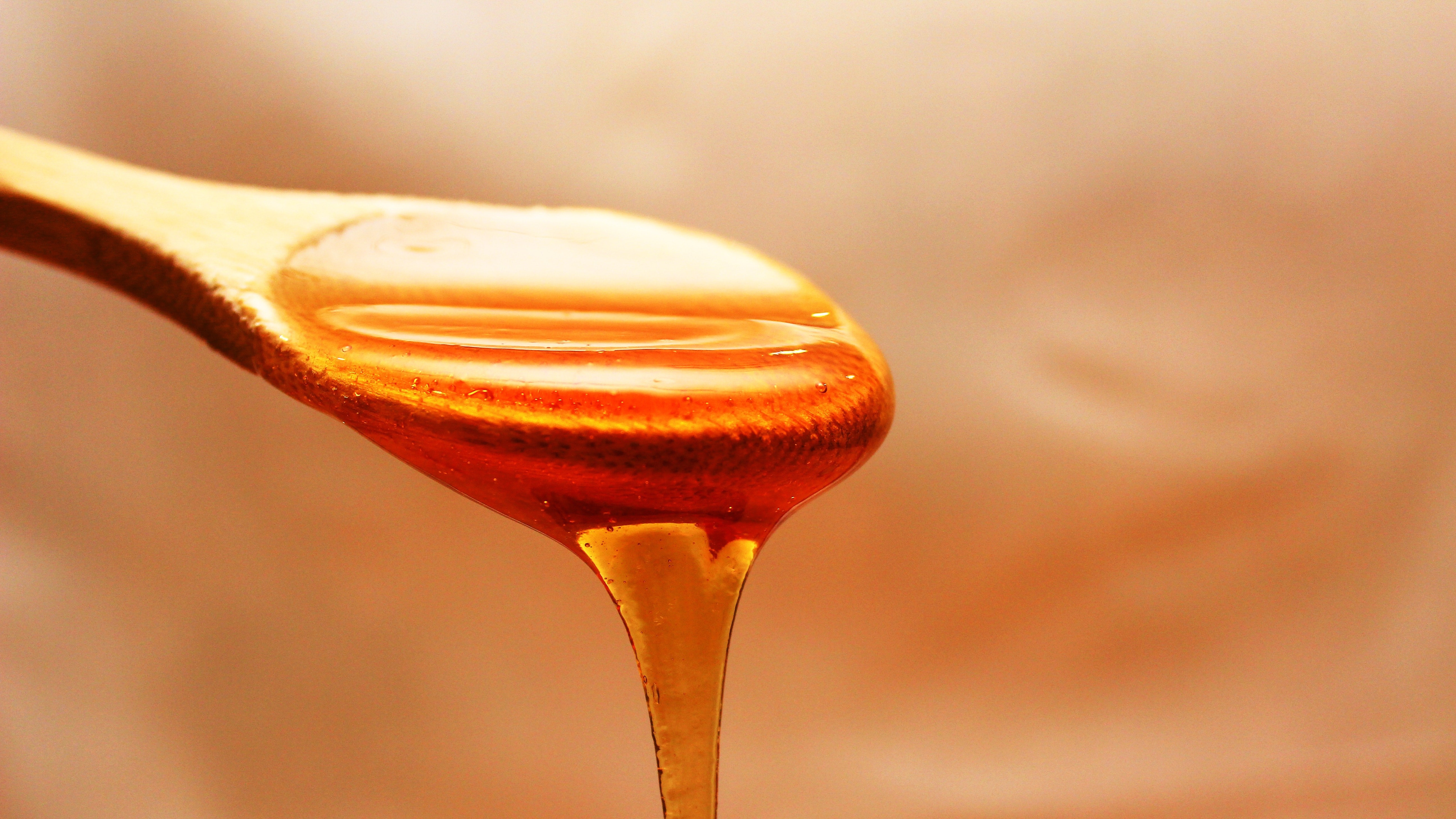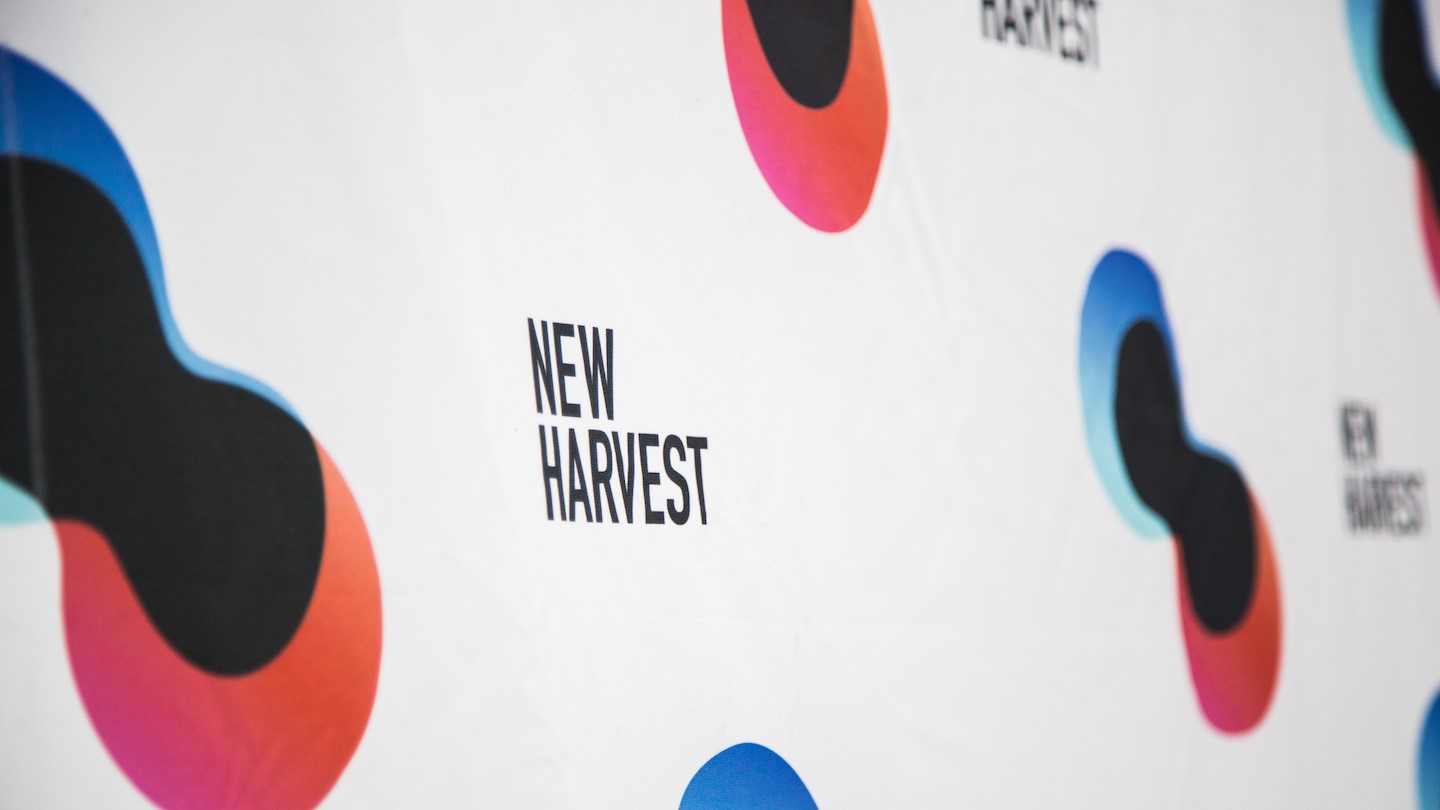October 2021: The Month in Review

After a month that featured more than half a billion in funding, October was a solid start to the fourth quarter of 2021 for the cellular agriculture field. Compared to conventional animal agriculture, cellular agriculture offers an alternative and more sustainable way to produce the same animal products directly from cell cultures. From meat to dairy, cellular agriculture can make a wide range of animal-derived products.
From new funding rounds to the first cellular agriculture institute in the United States, we look at what happened this October in cellular agriculture.
Investments
TurtleTree Labs
TurtleTree Labs announced the company raised a massive $30 million in Series A funding to develop cell-based milk.
Based between Singapore and the United States, TurtleTree plans to grow mammary gland cells that will directly produce mammalian milk, including human breast milk. The company previously shared plans to make human breast milk before focusing on other types of mammalian milk, such as dairy milk.
According to the announcement, TurtleTree Labs’ Series A financing was led by Verso Capital. The funding round brings the company’s total funding to $39.4 million. TurtleTree Labs previously raised $6.2 million in Pre-Series A funding in December 2020 and $3.2 million in seed funding in June 2020.
 TurtleTree Labs co-founders Fengru Lim and Max Rye
TurtleTree Labs co-founders Fengru Lim and Max Rye
While the company ultimately aims to use its mammary cell technology platform to produce cell-based dairy ingredients, TurtleTree shared that it is looking to initially use its future microbial platform to create cell-cultured dairy ingredients.
Considering that other companies have brought their food products to market using microorganism platforms (including cell-cultured dairy company Perfect Day), TurtleTree believes the company can come to market faster with its microbial platform while it continues to develop its cell-based dairy technology platform. TurtleTree currently envisions that its cell-based milk will be commercialized in 4 to 5 years.
Moving forward, TurtleTree aims to use the funding round to continue its research and development into cell-based dairy and expand its team. In June 2021, TurtleTree shared that the company will launch the protein lactoferrin as its first product. The company also shared it was in discussions with regulators in Singapore and the US for approval of its products in 12 to 18 months.
Biomilq
Biomilq announced the company raised a massive $21 million in Series A funding. Founded by Michelle Egger and Leila Strickland, Biomilq is an infant nutrition company that uses cellular agriculture to produce cell-cultured human breast milk. By using human mammary cell cultures, Biomilq aims to develop another way to produce cultured human breast milk that does not require a trade-off between a baby’s nutrition and the mother’s well-being.

Biomilq’s funding round was co-led by Novo Holdings, a Danish life science investor group, and venture firm Breakthrough Energy Ventures, an investment firm established by Bill Gates to support innovation fighting climate change. Other investors in the funding round include Blue Horizon, Spero Ventures, Digitalis Ventures, Green Generation Fund, and Gaingels.
The funding round brings Biomilq’s total funding to $24.5 million. In June 2020, Biomilq raised $3.5 million in its seed funding round to develop its cell-cultured milk.
The Series A funding round continues Biomilq’s great year. In June 2021, the company produced its first cell-cultured human breast milk prototype. According to the announcement, Biomilq’s prototype had a macronutrient profile that closely matched the expected types and proportions known to be present in breastmilk.
Moving forward, Biomilq plans to use the funding round to accelerate both process development and optimization. The company aims to build a pilot plant at its headquarters in Durham, North Carolina, and scale production to larger quantities required for safety testing.
Biomilq shared that the company is in conversations with regulators about the categorization and process through which their product may eventually come to market. As the company continues to scale and continue regulatory discussions, Biomilq aims to launch their cell-cultured human breast milk over the next four years.
Shiru
Shiru announced the company raised $17 million in Series A funding to produce animal-free proteins for food applications.
Through bioinformatics and machine learning, Shiru identifies plant-based ingredients with the same properties as animal-derived proteins and uses acellular agriculture (also known as precision fermentation) to produce the proteins of interest without requiring animals.

The funding round was led by S2G Ventures and featured return investors Lux Capital, CPT Capital, Y Combinator, and Emles Venture Partners. The company plans to use the funding round to scale its R&D capacity and expand into a new facility in California.
According to Shiru, the company is focusing on developing six cell-cultured protein ingredients that have similar gelation properties as proteins that come from animals. Shiru shared that the company is in preliminary discussions about partnerships and aims to deliver some samples next year.
Qoa
Cell-cultured chocolate, anyone? New startup Qoa announced the new German company raised $6 million in seed funding to develop cell-cultured cocoa. Based in Munich, the funding round was led by Cherry Ventures and featured investments from Fifty Years, Nucleus Capital, and Trellis Road. In August 2021, Qoa shared the company recently went through the Y Combinator program and is accepting pre-registrations to get its test kit with its cell-cultured cocoa chocolate.
 Qoa's cell-cultured cocoa testing kit
Qoa's cell-cultured cocoa testing kit
California Cultured
New startup California Cultured raised its seed funding round of $4 million to use cellular agriculture to produce cocoa products directly from cell cultures. Founded by Alan Perlstein and Harrison Yoon, California Cultured aims to address many of the problems associated with cocoa farming and production, including deforestation and resource consumption.

Considering that 70% of the world’s cocoa is grown in West Africa, cell-cultured chocolate may address widespread deforestation and human rights issues associated with conventional chocolate. In addition, cell-cultured chocolate may also require less water and resources to produce.
The funding round was led by Agronomics and also featured an investment from IndieBio, a leading life science accelerator where many other cellular agriculture startups emerged.
Ashton Kutcher Invests in MeaTech 3D
Sound Ventures, an investment group led by actor and investor Ashton Kutcher, announced a partnership with Israeli cell-based meat company MeaTech 3D. Considering Sound Ventures’ focus on sustainable supply chain management, cellular agriculture has the potential to improve the sustainability of food supply chains globally.
As part of the announcement, Sound Ventures shared they plan to work closely with MeaTech to help the startup implement its strategy and achieve its goals through its strategic expertise and network.
In March 2021, MeaTech 3D became the first cell-based meat company to go public on the Nasdaq stock exchange. In addition, in 2020, MeaTech became the first company to acquire another cell-based meat startup.
Clara Foods Rebrands to The Every Company and Launches ClearEgg
Clara Foods announced the company rebranded to The EVERY Company and announced the launch of its first animal-free egg protein product.
Based in San Francisco, California, The Every Company is a startup that uses cellular agriculture to produce animal-free proteins, specifically egg proteins. By designing yeast to produce the same proteins found in an egg from a chicken, The Every Company aims to make the same egg white. Without requiring the chicken.
 The Every Company's CEO Arturo Elizondo and the ClearEgg protein product
The Every Company's CEO Arturo Elizondo and the ClearEgg protein product
Along with the rebranding to The Every Company, the company announced the launch of ClearEgg. According to the company, Clear Egg is a highly soluble and nearly tasteless protein that can be used as an ingredient to increase the protein content of various foods and beverages.
From hot and cold beverages to snack bars, The Every Company states that ClearEgg can add a protein boost to a wide range of food and drinks. In addition, compared to plant-based and animal-derived protein ingredients, the company also claims that ClearEgg has a better and more neutral sensory profile and does not require any sugar or flavors to mask its taste.
Regarding regulation, The Every Company shared the company received a letter of no objections or questions from the US Food and Drug Administration regarding its Generally Recognized as Safe (GRAS) determination for ClearEgg on September 9th. Moving forward, the company has also put together GRAS determinations for several other egg proteins in its pipeline to the FDA.
In addition, The Every Company stated its ClearEgg protein would be labeled as ‘non-animal egg white protein’ in ingredient listings. Considering the main protein in ClearEgg is egg allergen protein ovomucoid, each food product with ClearEgg needs to be labeled with a warning that the product ‘contains eggs.’
 According to the The Every Company, its ClearEgg protein product is highly soluble
According to the The Every Company, its ClearEgg protein product is highly soluble
Moving forward, the company is in talks with different food and beverage companies to use its ClearEgg as an ingredient in their products. The Every Company shared it sent samples to about 40 different companies and aims to launch its ClearEgg protein as a co-branded ingredient with its first retail customer later this year in 2021.
Similar to its animal-free pepsin protein product launch in March 2021, The Every Company’s ClearEgg protein product will be distributed by Ingredion, a global ingredients distributor in over 120 countries. The Every Company first announced its global partnership with Ingredion in April 2019, along with its Series B funding announcement.
In addition to the partnership with Ingredion, The Every Company acknowledges that capacity and scaling are one of its main hurdles moving forward. In April 2021, The Every Company announced a partnership with global beer brewing company AB InBev through its venture and innovation arm ZX Ventures to scale the production of its animal-free egg proteins.
USDA Announces Funding to Develop Institute for Cellular Agriculture in the US
As part of the Sustainable Agricultural Systems program, the USDA’s National Institute of Food and Agriculture and Tufts University announced that $10 million would be allocated to the development of an Institute for Cellular Agriculture over a five-year period.
Led by Tufts University Professor David Kaplan, the Institute for Cellular Agriculture will be a joint collaboration between six major American universities, including Tufts University, Virginia State, Virginia Tech, MIT, UC Davis, and UMass Boston.

As the first institute of its kind, the Institute for Cellular Agriculture aims to address many of the critical questions and pain points surrounding the field. From consumer acceptance surveys to the field’s environmental impact, the institute also aims to address many of the key technical scaling challenges, including cell line development and cell culture media formulations.
The institution also aims to develop educational programs around the cellular agriculture field as well as facilities workforce development programs for students interested in finding jobs in the field.
As the first federally funded institute with a specific focus on cellular agriculture and cell-based meat, this is a significant breakthrough for the field. Through public research and support, more researchers will have access to resources to address the critical technical and viability challenges behind cell-based meat and the wider cellular agriculture field.
While there are still many questions about how regulation may look like for the field in the US, it is promising to see the USDA support research funding to address many of the key challenges that the field will need to address.
Prior to this announcement, in September 2020, UC Davis in California received the first major US government grant from the National Science Foundation of $3.5 million over five years for cellular agriculture research.
Mosa Meat and Nutreco receive Grant from React EU
Cell-based meat company Mosa Meat announced the company received a grant from React EU in collaboration with investor and partner Nutreco, a Dutch animal nutrition and fish feed company.
 Mosa Meat's cell-cultured meat burger
Mosa Meat's cell-cultured meat burger
Calling the project ‘Feed for Meat’, the grant will focus on R&D to lower the cost of the cell culture media formulation to grow cell-based meat, specifically the basal media component. By replacing pharma-grade ingredients to feed- and food-grade ingredients for the cell culture media, Mosa Meat believes the company can reduce the cost of its basal media by a factor of at least 100x. Mosa Meat first announced its partnership and investment from Nutreco in January 2020.
MeliBio showcases first Honey prototype
Animal-free honey, anyone? The startup MeliBio unveiled its first product at a tasting event at Cell Valley Labs in Berkeley, California, at the start of October.
A selection of desserts using its honey product, MeliBio shared its first product is a plant-based honey as the company develops a process to produce cell-cultured honey via acellular agriculture. MeliBio shared the company is gearing for a soft launch supplying foodservice and CPG companies with its animal-free honey later this year.

The company is currently speaking with legal experts about regulatory matters for its product but, considering its first product is plant-based, does not anticipate significant challenges. According to the company, its plant-based honey is made from ingredients already deemed generally recognized as safe (GRAS) by the FDA.
Mission Barns Partners with Herotein in China
Chinese alternative protein company Herotein (previously known as Hero Protein) announced a strategic partnership with cell-cultured fat company Mission Barns to develop a hybrid plant- and cell-based products for China. Fat is a crucial component of meat, and Mission Barn’s cell-cultured animal fat can play a key role in improving the taste and texture of plant-based meat products.
While there is no release date yet for the hybrid Mission Barns and Herotein product, Mission Barns will still need to go through regulatory approval to sell its product in China. In April 2021, Mission Barns raised $24 million in Series A funding to scale its cell-based fat production platform.
Future Meat Technologies Conducts US Survey and plans to open US-based Facility in 1-2 Years
In a survey conducted by Israeli cell-based meat company Future Meat Technologies, the startup found that many US consumers were interested in trying its cell-cultured meat. Partnering with Provoke Insights, the survey interviewed over 2,000 adults living in coastal states in the US. According to the results, more than 1/3 of the surveyed people stated they would try meat produced from cell cultures.
 Future Meat Technologies' pilot scale facility
Future Meat Technologies' pilot scale facility
In addition, 58% of the surveyed adults stated that they were aware of cultured meat or had previously heard of it. Interestingly, when asked to rank names, consumers preferred the term cultured meat the most.
After opening its pilot-scale facility in Israel in June 2021, Future Meat Technologies shared plans to develop a facility in the US and launch in the next 1-2 years, pending regulatory approval. In addition, the company shared its US facility would produce a larger volume than its pilot-scale one.
Culture Biosciences Raises $80 Million to Scale Bio-Manufacturing
Biomanufacturing company Culture Biosciences announced it raised a massive $80 million in Series B funding to accelerate bio-manufacturing worldwide. By designing small fermentation tanks, Culture Biosciences allows companies to meet their cell-culturing testing needs.
While Culture Biosciences does not focus on making a product via cellular agriculture, its fermentation services will enable other companies to test their cell lines and products before scaling production. Culture Biosciences’ customers already include The Every Company (formerly Clara Foods), Geltor, Modern Meadow, and C16 Biosciences. The company plans to use the funding round to increase capacity and expand into commercial-scale manufacturing.
Consumer Survey in Hong Kong: Consumers are ready for Cultured Meat
A new survey conducted by cell-based seafood company Shiok Meats found that 95% of surveyed people in Hong Kong are willing to try cell-based meat and seafood. The survey interviewed 1,209 Hong Kong residents between the ages 15 and 65 in early 2021, where 46% self-identified as omnivores and 26% identified as flexitarians.
According to the survey, 63% would be interested in eating cell-based meat one to three times per month. Within this group, 20% stated they would be open to consuming cell-based meat more frequently at one to three times per week. Food safety was cited as a primary motivator to trying cell-based meat and seafood (43%), followed by sustainability benefits (40%).
Interestingly, up to 87% of the surveyed group had previously heard about cell-based meat, suggesting that surveyed Hong Kong residents are much more aware and familiar with the concept and field. At the same time, cost remains a significant deterrence for consumers, with 50% of the surveyed group stating price would be a concern followed by taste (32%).
In March 2021, Shiok Meats conducted a similar public perception survey in Singapore.
New Harvest Publishes Food Safety Paper
This month, cellular agriculture nonprofit New Harvest announced the publication of the field’s first paper about cell-cultured meat and seafood manufacturing safety. Through its initiative, New Harvest brought together 87 individuals from 50 different cell-based meat and seafood players to share previously unpublished information for the food safety initiative. The paper was co-authored by Vireo Advisors, Mosa Meat, and International Flavors and Fragrances.

Consumers in South Africa are interested in Alt Proteins
How will the future of food look like in South Africa? A new public perception survey by South Africa-based Credence Institute in partnership with North Mountain Consulting Group found that South African consumers are interested in novel protein sources, including both plant-based and cell-based meat.
While more than 67% of surveyed consumers stated they were interested in plant-based meats, 60% said they were highly likely to try cell-based meat, and 53% were highly likely to purchase it. Furthermore, within the group interested in purchasing cell-based meat, the survey found that approximately 31% of the surveyed would be willing to pay a premium for the product.
Eat Just Receives European Food Safety Approval for Plant-based Egg
Eat Just announced the company received approval from the European Food Safety Authority’s expert panel for nutrition for its mung bean protein, a key component of its plant-based JUST Egg product.
 Eat Just's plant-based egg
Eat Just's plant-based egg
After the European Commission concludes its reviews, the approval paves the way for JUST Egg’s launch in Europe in mid-2022. According to the company, Eat Just’s mung bean protein has become the first novel legume protein to be deemed safe under the regime that has governed all-new food ingredients entering the European markets since May 1997.
In December 2020, Eat Just also made history by becoming the first company to receive regulatory approval to sell its cell-cultured chicken in Singapore.
Conclusion
In August, New Harvest Executive Director Isha Datar spoke at the TED Talk event in Monterey, California, about cellular agriculture and its potential to transform our future food system. Beyond the environmental and public health implications, Datar raised essential questions about the role of policy and governance to ensure the field positively impacts the world. With the establishment of the first federally funded cellular agriculture research institute, critical policy topics may start to be addressed in the US.
With six new funding announcements this month, October marked a strong start to the final quarter for the cellular agriculture field. TurtleTree’s and Biomilq’s funding rounds highlight the growing interest in using mammary cells to grow cell-based milk and dairy products directly. In addition, with the emergence of two new startups also looking to develop cell-cultured chocolate, it is promising to see investors support a broader food ecosystem with cellular agriculture beyond meat.
Stay connected with CellAgri
Join our mailing list to receive the latest news and updates weekly from the cellular agriculture industry. Your information will not be shared.



